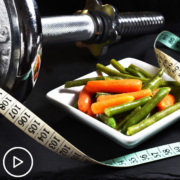Understanding Patient-Centered Care via Alliance for Patient Access
The Alliance for Patient Access created a video to help you understand patient-centered care.
The Alliance for Patient Access created a video to help you understand patient-centered care.
Is Laughter Really the Best Medicine? One Woman’s Mission to Help Others with MPNs from Patient Empowerment Network on Vimeo.
Could laugher really be the best medicine? Patient advocate Summer Golden explains how she uses comedy to cope with her myelofibrosis (MF) diagnosis and shares her mission to inspire others.
Summer Golden and Jeff Bushnell have been married for over 20 years. When Summer was diagnosed with myelofibrosis (MF), Jeff took on the role of care partner and advocate. Summer uses her years of theatre training and comedy to cope with her condition and help others, while maintaining positivity about the future.
See More From the The Path to MPN Empowerment

|

Am I Meditating Correctly? Getting the Most Out of Mindfulness |
|
Summer:
When I was initially diagnosed after some other false starts with an MPN, I was kind of shocked because I’ve never really been sick, and I don’t take medications, but I didn’t think about it – that sounds crazy; I can’t explain it. I just figured I’d be okay, and the main thing – I didn’t wanna give up this theater.
You know how when you’re my age, people talk about nothing but their illness sometimes? I just never been into that, so it wasn’t part of my personality.
I started doing comedy two years ago because a friend of mine was taking a comedy class, and I went to her showcase, and I thought, “I should try that, even though I’ll never be funny, I have no jokes, and I don’t know what I would say.” But, I went, and I did comedy in clubs for a while, and then I didn’t – I don’t really like drinking and dirty jokes, so I kind of got away from it off and on, and then, when I got into doing it about my myelofibrosis, then I saw a purpose in it, so I went back to it.
I was thinking about whether my life was gonna be changed, how this was gonna change me, so I emailed my comedy teacher in the middle of the night, and I said, “Do comedians ever talk about cancer, having it?” And, he said, “Only if they have it.” So, I emailed him back and I said, “I’m coming back to your class,” so I did. He assigned everyone to be in a showcase. I was gonna do mine about cancer. It was six weeks, so I had to find humor. I don’t know how I find it. I just kind of see things.
I was shocked because I thought people were gonna hate it, and I was gonna quit, and then I’d invited my doctor and two friends, so I thought I’d better not just not show up. But, people came up and said they were inspired. I was just amazed because I mainly –I don’t go out of my way to think of – I do think of things that are funny, but it’s just – it’s a real thing. I try to keep my comedy real.
It’s helped me by being in control. I don’t pay much attention to the symptoms because I’m kind of over them.
Just helped me feel like I’m doing what I can do, and so far, it seems to be working, as long as I get enough sleep.
How do I think comedy could help other people who have health problems? I can tell you one way I thought to help somebody. I wanna start a class for people, but so far, there hasn’t been a lot of interest, but I think I could really help people doing that because I know how to write comedy.
If they really wanna do that, they would be a type of person that has humor, and they could do it, but you’ve gotta realize sometimes, people get a lot out of being sick. There are a lot of rewards, and so, they might prefer to have those rewards. For my way of thinking, if they wanna do humor, it’ll make a big difference, and if somebody wants to do it, they could call me, and I’ll help them.
Can Diet and Exercise Reduce MPN Symptoms? from Patient Empowerment Network on Vimeo.
What can YOU do to make a positive impact on your overall MPN care? Researchers Dr. Jennifer Huberty and Ryan Eckert review the latest research on how movement and diet can benefit people living with myeloproliferative neoplasms (MPNs).
Dr. Jennifer Huberty is an Associate Professor at Arizona State University. She focuses her research on the use of complementary approaches to manage symptoms and improve quality of life for patients living with myeloproliferative neoplasms. More about Dr. Huberty here: chs.asu.edu/jennifer-huberty.
Ryan Eckert currently works at Mays Cancer Center, home to UT Health San Antonio MD Anderson Cancer Center. Ryan is the Research Coordinator for the MPN QoL Study Group and assists in research related to complementary health approaches in myeloproliferative neoplasms and other hematological disorders. More about Ryan here: mpnqol.com/research-team.
See More From the The Path to MPN Empowerment

Am I Meditating Correctly? Getting the Most Out of Mindfulness |

|

Improving Life with MPNs: The Latest Research and How to Get Involved |
Ryan:
So, as far as the benefits of exercise for MPN patients, there’s many, and so, I guess starting with cancers as a whole, there’s a lot more research that’s been done in recent decades that looks at the effects of various forms of exercise and physical activity on other cancers. They just tend – researchers tend to do a lot more of that work in breast cancer, lung cancer, colon cancer, et cetera.
And so, the research in exercise for MPN patients is actually really new, and nobody outside of Dr. Huberty in conjunction with Dr. Mesa and a few other researchers have done any research related to exercise specifically in MPN patients. Our yoga studies that we’ve done have been the first venture down that route for MPN patients. But, what we do know in general is that exercise has obviously systemic effects across the whole body.
So, you’re gonna get health benefits just in general from exercise, but as far as for MPN patients specifically, some of the things that we’ve seen with our yoga studies, which is obviously a form of physical activity, is that we’ve seen sleep improve in MPN patients, so we’ve seen a reduction in sleep disturbances or disruptions in their sleep, a quicker time to fall asleep, and then, less waking up throughout the night – so, just better sleep in general.
We’ve seen some reductions in fatigue that have been reported by MPN patients who have gone through our yoga studies, and then, we’ve also seen a few other reductions in some other symptoms, such as anxiety and reduced depressive symptoms, a little bit of reduced pain is another one we’ve seen. So, just in general, we’ve seen some of those effects on MPN patients through some of our yoga studies.
Dr. Huberty:
So, in terms of adding to what Ryan just said, I would just say that exercise – maybe yoga or walking – is good for your body. It’s good for your health. It’s a recommendation that we get 150 minutes of moderate-intensity activity every week. The more that MPN patients can be achieving that goal towards 150 minutes – yoga counting at that – the better off they’re gonna be, and it doesn’t have to be going for a run.
It can simply be going for a walk around the block. It can be standing at your desk when you’re working instead of sitting all the time. That’s not necessarily activity per se, but it is moving your body and less sedentary. So, I think just focusing on the more that patients can move their body every day, the better off they’re gonna be.
Dr. Huberty:
So, yeah, the role of diet in MPN patients – so, this is the beauty about the quality of life study group, because we have all these wonderful investigators that are part of the team, and we do have Dr. Robyn Scherber, who’s at Mays with Dr. Ruben Mesa. She’s doing some work with keto diet right now, so it’s very new, so I don’t know if you’re familiar with the keto diet, but it’s very high-fat and very low-carbohydrate, extremely low levels of carbohydrates. I wouldn’t tell any patient to go start doing those things unless they’ve talked to their physician for sure, but we do know that based on how you eat does certain things to your body.
So, MPNs have high inflammatory markers, and so, we wanna decrease inflammation; we probably wanna eat foods that are going to be anti-inflammatory. So, berries, let’s say, is a good example of fruits that are anti-inflammatory, almonds are anti-inflammatory, and I’m not a dietitian by any means, it’s just that things that I know to be true for my own diet because everybody should be thinking about having an anti-inflammatory diet.
Processed foods are not healthy. They are higher-inflammatory. Breakfast foods, eating out, and the foods that you get when you eat out a lot are going to be more inflammatory than not. So, just those small things – lots of vegetables. Vegetables are very good. Lots of greens. But, there is research going on – again, just like exercise and yoga, it’s in its infancy because MPN has been an under-studied population for years, and we’re trying to power through and make that difference.
Am I Meditating Correctly? Getting the Most Out of Mindfulness from Patient Empowerment Network on Vimeo.
Dr. Jennifer Huberty explains how mindfulness, such as meditation and yoga, can have an impact on your overall health and well-being.
Dr. Jennifer Huberty is an Associate Professor at Arizona State University. She focuses her research on the use of complementary approaches to manage symptoms and improve quality of life for patients living with myeloproliferative neoplasms. More about Dr. Huberty here: chs.asu.edu/jennifer-huberty.
See More From the The Path to MPN Empowerment

|

|

Improving Life with MPNs: The Latest Research and How to Get Involved |
Dr. Huberty:
If someone is wondering if they’re meditating correctly or not, or if two minutes of meditation is enough, if you turn to the science and the literature in terms of how much meditation you need, nobody knows. For every study that says five minutes, there’s a study that says 20 minutes, there’s a study that says an hour. I think it’s really important that the individual gets in touch with “what works for me.”
I think the most important thing is that if you’re sitting for meditation and you choose to sit for meditation, just simply listening to your breath – when you realize you’re off, thinking about what I’m making for dinner tonight or what’s gonna happen over the Thanksgiving holidays with my family, then you just say, “Oh, thinking,” and then you come back to, “Okay, where’s my breath? I’m breathing in, I’m breathing out. I’m breathing in, I’m breathing out.” So, it’s just being able to do that and not say, “Oh my God, I’m not doing this right, this isn’t working for me.” There is none of that. It’s supposed to be nonjudgment in the present moment.
“Oh, the present moment – I’m thinking. Now, in the present moment, I’m gonna go back to my breath.” So, it’s really understanding that, and I think it’s also important for people to understand that you don’t have to be seated in meditation. You can be standing in meditation, you can be laying in meditation, you can be kneeling in meditation. I think with MPN patients, not all sitting positions recommended in meditation might be comfortable. If you need a pillow under your tail, put a pillow under your tail. There’s no rulebook to say how you need to sit in meditation. I think that’s important.
And, there’s also other ways to be mindful. Coloring can be mindful. Walking and exploring the leaves and the landscape can be mindful. So, I think in our studies, yes, we’re encouraging meditation, using an app, but that’s to give people structure, education, and a background about what is meditation, but then, there is room for expansion to other things.
It’s pretty much the same thing with yoga. You’re quieting your mind; you’re focusing on your breath. There’s no rulebook that says you have to move a certain pace. You’re supposed to move with your breath, so if your breath is slow, your pace is slow. The other thing is that there is no right way to do a pose.
So, again, patients wanna know, “Am I doing this pose right?” Well, I can tell you that if you feel good in the pose, nothing is hurting you, your shoulder doesn’t feel like it’s doing something it shouldn’t, your head doesn’t feel like it’s in the wrong direction, and you’re watching the video and looking at what the instructor’s doing, you’re probably doing the pose just fine.
I think we get stuck on “Is this correct or not?” What we wanna be careful of is safety. You don’t wanna be standing on your head and wondering if you’re doing it correctly. You wanna have a basis, and that’s what we do in our programming, is it’s very basic, very foundational poses that you can learn the practice of meditating in the poses.
Expert Tips for Managing MPN-Related Anxiety from Patient Empowerment Network on Vimeo.
Health-related anxiety and worry can be overwhelming. Dr. Jennifer Huberty provides advice for using complementary approaches to cope with the emotional impact of a chronic cancer, like myeloproliferative neoplasms (MPNs).
Dr. Jennifer Huberty is an Associate Professor at Arizona State University. She focuses her research on the use of complementary approaches to manage symptoms and improve quality of life for patients living with myeloproliferative neoplasms. More about Dr. Huberty here: chs.asu.edu/jennifer-huberty.
See More From the The Path to MPN Empowerment

|

Am I Meditating Correctly? Getting the Most Out of Mindfulness |

Improving Life with MPNs: The Latest Research and How to Get Involved |
Dr. Jennifer Huberty:
With anxiety and worry – it’s like we get in this state of mind that we can’t seem to get out of, and then, thoughts just keep piling in and piling in and adding to more anxiousness and more anxiousness, and so, the key is quieting the mind, and the best way to do that is to focus on your breath, and again, just coming back to the moment, coming back to the moment. You can do body scans where you’re just thinking about where your body is in space, going from the tips of your toes all the way to the top of your head.
I recommend guided meditation for MPN patients, especially because it is difficult. The anxiety and worry is real. The fears are real. This is a – it’s a traumatic event to be diagnosed with any cancer, and the brain is a powerful thing in terms of getting in our way of healing and feeling better, and so, knowing that it’s powerful, we can quiet our mind so that our body can learn to let go. And, I will say that spending that time doing that with the anxiety and worry, there will be physiological symptoms that change – so, heart rate goes down, blood pressure goes down, sweaty palms decrease, stomachaches – those kinds of things will tend to go away as anxiety and worry goes down.
And, the other important thing I would say is a tip for managing is to be self-compassionate. So, that’s a big part of meditation and yoga philosophy, is self-compassion. And so….being okay with being anxious and being okay with being worried, and there’s nothing wrong with that, and it’s completely normal.
And so, learning to be compassionate in ways that you would be compassionate to a sibling, or a parent, or a best friend – use those same compassionate thoughts and feelings toward yourself.